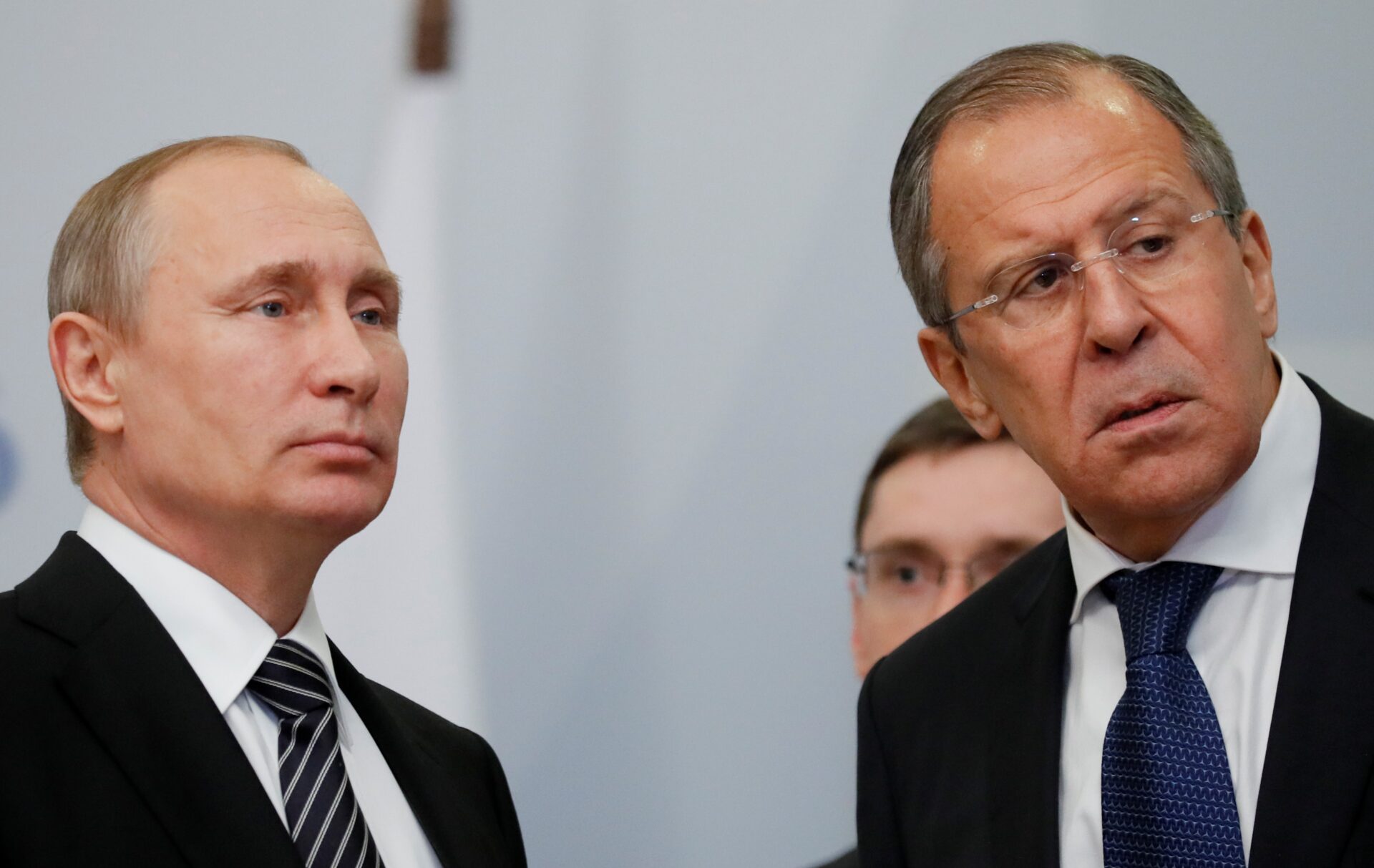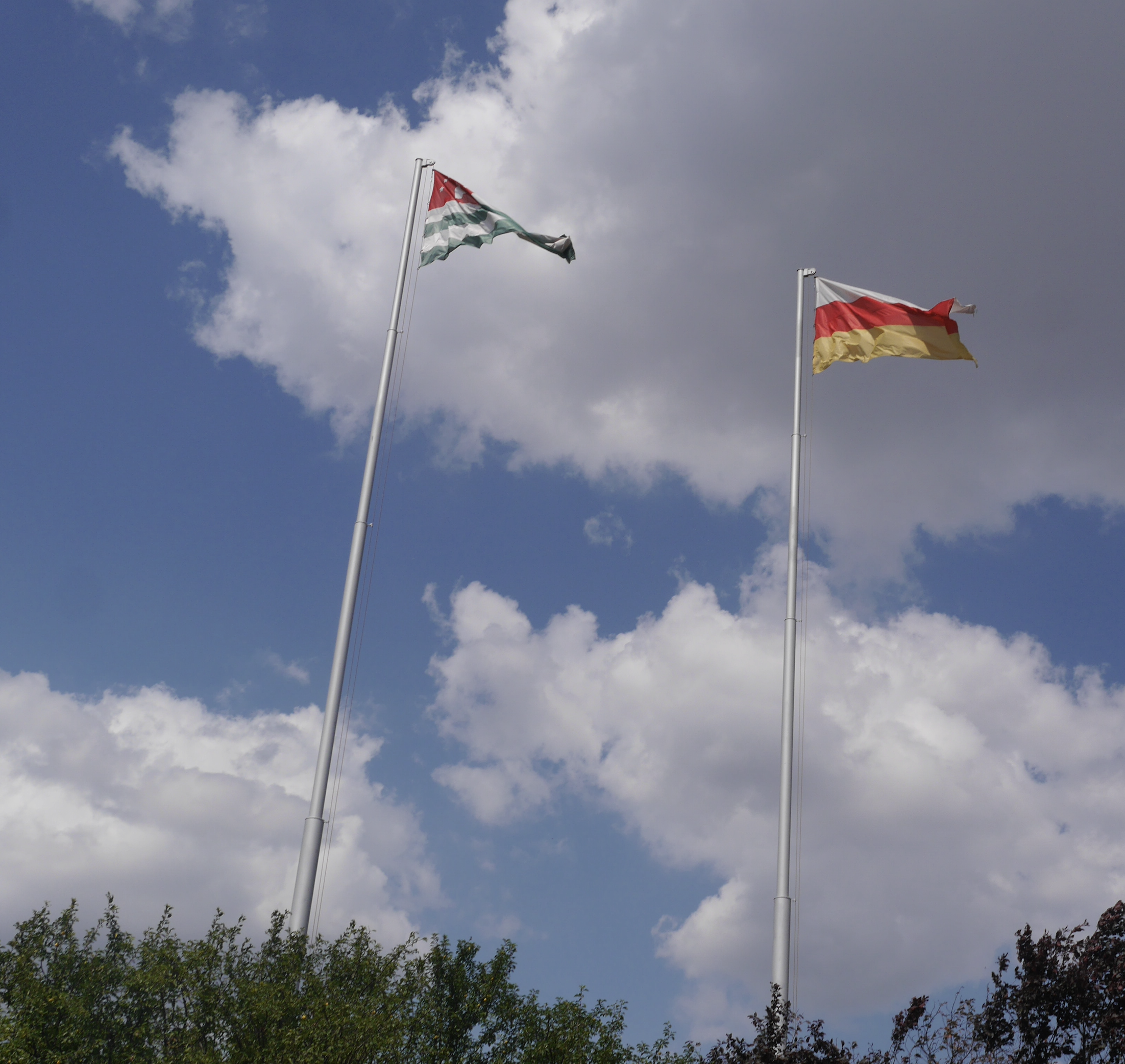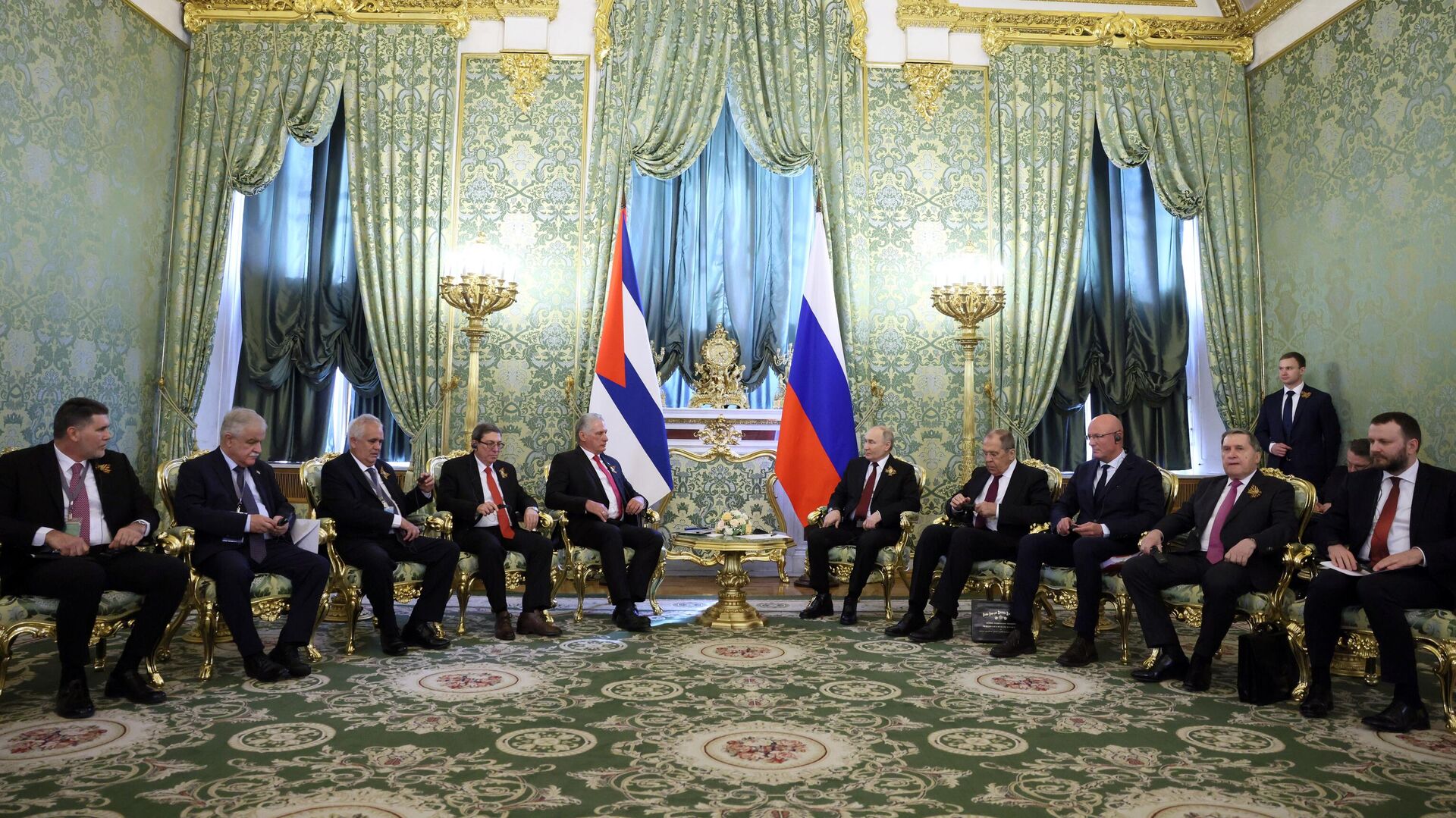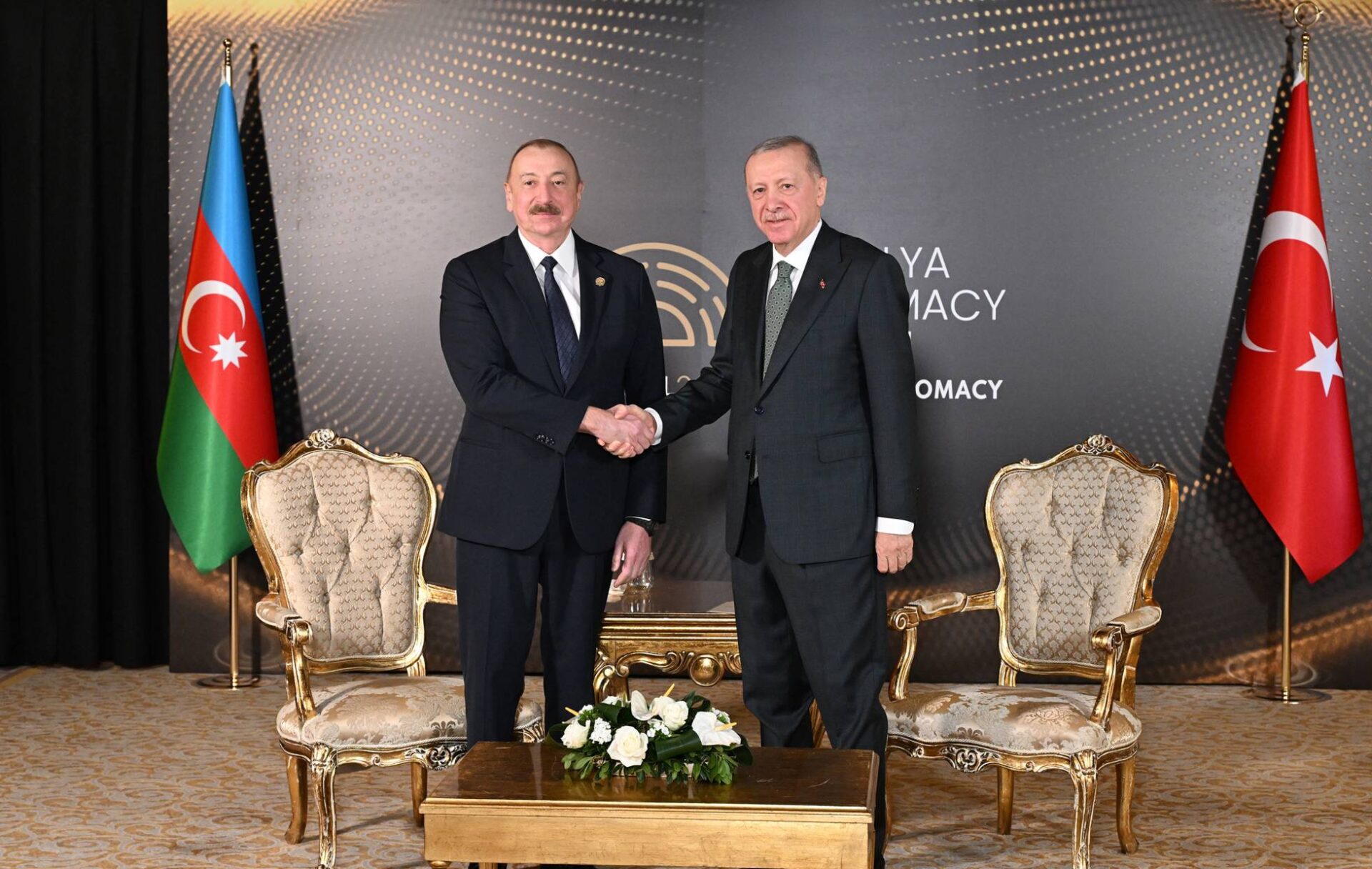
Putin Defends Trump and Ridicules His Enemies
Putin Defends Trump and Ridicules His Enemies
Last week’s (May 10) visit of Russian Foreign Minister Sergei Lavrov to Washington to meet with US Secretary of State Rex Tillerson as well as President Donald Trump in the White House was seen in Moscow as the beginning of the long-awaited defrosting of previously ice-cold relations. Federation Council Foreign Relations Committee chair Konstantin Kosachev praised the decision by Trump to receive Lavrov “the same way Putin received Tillerson in the Kremlin” as a sign the Trump administration is ready to treat Moscow as an equal. According to Kosachev, the possible involvement of Russia in the United States’ presidential elections was not discussed during Lavrov’s visit, “because there is nothing to discuss.” The tumult in the US press about the presence of a TASS news agency photographer in the Oval Office, together with Lavrov and the Russian ambassador, Sergei Kislyak, who accompanied him, was dismissed in Moscow as an attempt by the anti-Trump American media to make a story out of nothing (Interfax, May 12).
According to the chair of the Duma Foreign Relations Committee, Leonid Slutskiy, the meeting in the Oval Office may pave the way for a productive Putin-Trump summit next July in Hamburg, at the coming G20 summit. “Constructive relations with America can be built,” continued Slutskiy, “first of all in fighting terrorism in Syria” (Militarynews.ru, May 10). In an interview to Russian state television, after returning to Moscow, Lavrov disclosed he mainly discussed Syria during his meeting with Trump. The foreign ministry head implied there is “mutual understanding” with Washington on Syria and said he briefed Trump about the Russian, Turkish and Iranian plan, announced on May 4 in Astana (see EDM, May 4), to create “de-escalations zones” in Syria. According to Lavrov, these zones “may expand to cover all of Syria” (Militarynews.ru, May 14).
Last December, the Barack Obama administration denied Russian diplomats access to country retreats or “dachas” Russia owns in New York state and Maryland. Also, 32 Russian diplomats were expelled as a reprisal for Moscow allegedly interfering with US elections. Russia did not undertake any tit-for-tat retaliations to expel US diplomats and did not seize any US property in Russia, apparently after Trump’s advisor Michael Flynn met with Ambassador Kislyak and allegedly asked for restraint to allow Trump to take office and possibly undo the damage. Flynn has been disgraced and forced to resign, but the Russian foreign ministry believes it is time for the Trump administration to revoke the latest Obama sanctions. At a press conference in Washington, after meeting Trump, Lavrov insisted the grace period is almost over and tit-for-tat anti-US measures may be enacted, if Russia does not recover its US dachas “taken in violation of international law.” According to the foreign ministry’s official spokesperson, Maria Zakharova, “US officials have assured us they are working on measures to solve the dacha problem” (Interfax, May 13).
Another reassuring message from Washington reached the Kremlin last week: After meeting with Lavrov and his team, Trump received former Secretary of State Henry Kissinger (93) in the Oval Office. The Kremlin spokesperson, Dmitry Peskov, told journalists: “We have great respect for the experience and wisdom of Kissinger. We will be thrilled if the Trump administration decides to use Kissinger’s great expertise.” Reportedly, Kissinger has been advising Trump to mend fences with Russia by tacitly recognizing Russia’s exclusive sphere of domination in the post-Soviet space, including Ukraine, Belarus, Georgia and Kazakhstan (Militarynews.ru, May 10). Such a turn in US foreign policy would be most welcome in Moscow: In a speech last January, the Russian defense minister, Army General Sergei Shoigu, described as one of the prime military/security threats Russia is facing the “West continuing to ignore Russia’s vital interests and considering the strengthening of Russian influence in the post-Soviet space as a security threat.” To counter this threat, Russia is engaged in a massive military buildup of its conventional and nuclear forces (Mil.ru, January 12).
Things seemed to be moving in the right direction, but this week it all apparently went south as leaks emerged about Donald Trump disclosing at the meeting with Sergei Lavrov top-secret information, apparently originating from an Israeli source, about the Islamic State planning to smuggle explosives hidden in computer notebooks onto US-bound passenger jets. At first, Trump’s aides denied the reports, and the Kremlin joined in with Peskov announcing: “It is nonsense, we [Russia] have nothing to do with it” (Interfax, May 16). Zakharova accused “American fake news media” of spreading lies about the Trump-Lavrov meeting, “but we pre-empted their plot by publishing the photos from the Oval Office.” According to Zakharova, the “corrupt US media is brainwashing the US public and are paid to attack the Trump administration” (Kommersant, May 16).
When Trump acknowledged he did disclose sensitive information concerning terrorism to Lavrov and had the legal right to do so, Putin personally stepped into the fray. Speaking to reporters in Sochi after a meeting with Italian Prime Minister Paolo Gentiloni, the Russian head of state lashed out against Trump’s opponents, “who are deliberately destabilizing the political situation in the US using anti-Russian slogans, because they are either imbeciles, who do not understand what they are doing, or they are dangerous and dishonest.” Putin jokingly reprimanded Lavrov (who was grinning in the audience) for not reporting “any secrets” originating from Trump. Putin offered to send to Congress a transcript of the meeting in the Oval Office, “if the White House agrees.” Putin declared that Trump and Lavrov had a very good meeting, while “ludicrous accusations of Trump revealing secrets are part of the political schizophrenia gripping America, based on inflaming anti-Russian passions.” “We were first amused when these internal American squabbles began,” continued Putin, “but now we are concerned” (Kremlin.ru, May 17).
A divided and unpredictable United States poses a distinct challenge and even a danger to all global players—not only Putin. Clearly, any attempts to build a stable working relationship between the Kremlin and the Trump White House will be an uphill job. Hopes to draw up a tacitly agreed-upon “Kissingerial” realpolitik division of spheres of domination in Eurasia seems a distant dream. Putin is understandably angry and must decide his next move: to either continue to wait for Trump to finally put his administration in order, or move ahead unilaterally to secure Russian interests as he understands them, disregarding the “schizophrenic America.”


